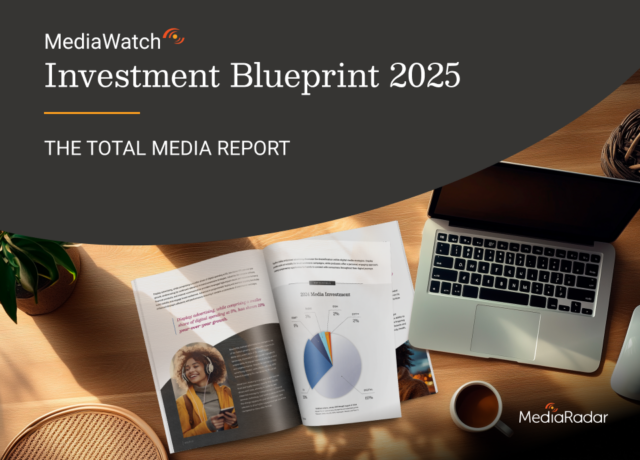Attendees are enthusiastic about networking without screens again, but the return to events is anything but normal.
With Mobile World Congress wrapping up last week, we wanted to check in on the latest business events. Which large business events are the latest to announce in-person or hybrid formats? And are hybrid events still looking like they’re here to stay?
We encourage you to subscribe to our blog for the latest data surrounding the advertising industry. We will provide daily updates as COVID-19 continues to make its mark on the US economy.

Quiet and Loud: 2021 Events Depend on the Audience
Mobile World Congress was one of the first major events to get cancelled last year, and it was one of the first to return to in-person attendance in 2021.
The event took place using a hybrid model and attracted half the typical amount of in-person attendees. Several tech giants, including Google, Facebook, Samsung, Ericsson, and Qualcomm, didn’t attend the event in-person.
All that to say, it was a fairly quiet event compared to past years. Companies have learned that they can reach broader audiences and reduce costs with virtual events. Online platforms allow key participants to schedule meetings with others and arguably get more value out of the conference’s content.
But the calm nature of MWC 2021 doesn’t mean that it won’t return to the energy levels it used to have. Planning for the MWC usually takes a full year, and companies likely didn’t have enough safety and travel information to commit to the event.
“Any absence or diminished participation shouldn’t be taken as a lack of confidence,” said Daniel Hays, a principal at PricewaterhouseCoopers who consults for major tech and telecom firms.”I would expect that we’ll see continued recovery.”
In other industries, we’re seeing parties get started. Bitcoin 2021 drew a 12,000 person crowd in Miami, free of masks, eager to schmooze, enjoy basketball and drinks, and talk finance and tech. Attire ranged from business casual to music-festival getup, with one participant wearing a furry rave bikini.
This exuberance can be attributed to the type of crowd the conference attracted. Moishe Mana, a real estate mogul who owned the locale, compared crypto followers to those devotees of a religion. “The more you fight religion, the more holy it becomes and the stronger the movement becomes,” said Mana to the New York Times.
In general, we should expect hybrid events
Though several events are gearing up for a complete return to in-person events, like the National Association of Elementary School Principals Edu-Conference in Chicago, it seems that some of the largest events will still take place in a hybrid or virtual format.
Salesforce’s Dreamforce conference will take place in major cities across the world and will have a digital component to unite the global hubs.
Another sign that hybrid events are here to stay is Hopin’s recent acquisition of Boomset. This will allow the online event platform to expand into the physical: complete with badge issuing capabilities, self-service kiosks, QR code check-ins, and cashless payments.
Instead of seeing in-person event companies transition into virtual like we did last year, we’re seeing online solutions expand into physical events. This suggests that hybrid events will now be a routine part of the B2B marketing experience.
Big in-person events are still expected to ramp up. United Airlines is betting on business travel to increase later this year—it just put in its biggest jet order ever—but we’re not likely to ever go back to completely physical events. Instead, we’ll see more customization depending on the sponsoring companies, goals of the event and the audience.
For more updates like this, stay tuned. Subscribe to our blog for more updates on coronavirus and its mark on the economy.



